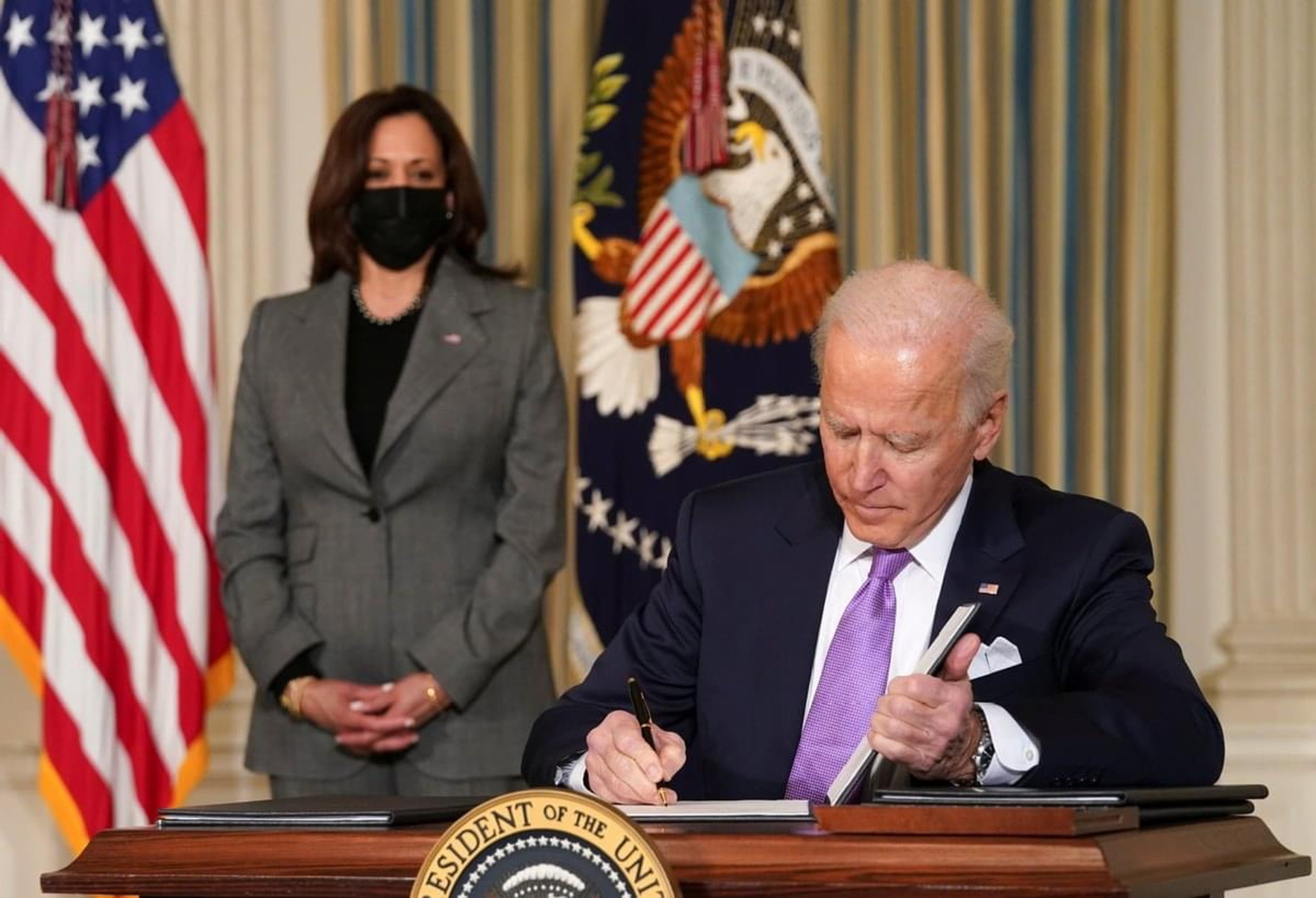Posts tagged Bureau of Labor and Statistics
Lawmakers propose banning all federal labor unions
March 17, 2025 // “This legislation would end federal labor unions and immediately terminate their collective bargaining agreements to ensure the federal government is working on behalf of the American people – not labor unions – by increasing the productivity of its workforce,” Blackburn said in a statement. If passed, the bill would affect 25% of the federal employee workforce who are members of public sector unions, according to the U.S. Bureau of Labor Statistics.

Op-ed: Protect American workers: How Trump’s team can fulfill his promise
March 6, 2025 // Regulatory reform is needed at three federal agencies that oversee labor laws and regulations: the U.S. Department of Labor, the National Labor Relations Board, and the Equal Employment Opportunity Commission. At the Labor Department, the administration should remove the economically inept "environmental, social and governance" investment criteria and instead protect workers’ retirement savings. Investment managers should be prohibited from advancing political agendas that reduce pension returns. The administration should guarantee workers freedom of information and transparency, so union members know how their leaders are spending dues.
Act 10, Scourge of Wisconsin Teachers, Faces Uncertain Future in Court
March 4, 2025 // According to the Bureau of Labor Statistics, the proportion of union members in Wisconsin’s workforce fell by nearly half, from 14.2% to 7.4%, between 2010 and 2023 (since that figure includes workers from all sectors, the drop for government employees is likely much steeper). A report from the Wisconsin Institute for Law & Liberty, a right-leaning think tank, showed that the total number of unions holding annual recertification votes across the state declined from 540 in 2014 to 369 in 2018. The largest teachers’ union in the state, the Wisconsin Education Association Council, experienced a dizzying loss of manpower and organizing heft. A 2019 study conducted by a pair of researchers at the University of Wisconsin found that WEAC was forced to restructure and cut its staffing by about two-thirds. The retrenchment was made necessary by a freefall in the collection of dues, the payment of which was made voluntary by Act 10. The loss of paid organizers could be offset, in part, by the efforts of teacher volunteers. But the union had no ready replacement for the millions of dollars in government relations funds that had suddenly evaporated; WEAC went from being one of the biggest lobbying forces in Madison to a second-tier player virtually overnight.
SEIU Researchers Admit $20 Wage Law Caused Fast Food Job Losses
February 27, 2025 // As EPI notes, the evidence is from an unexpected source: “…the same labor union that pushed for the $20 policy.” “EPI has been a leading voice on the consequences of this law, releasing multiple reports based on government data that show the state’s $20 minimum wage is costing jobs. In an attempt to cover up these consequences, unions have supported biased researchers who are supportive of $20.”

‘Union Joe’ left labor movement weaker than it was
February 25, 2025 // As Dominic Pino pointed out last month in National Review, the overwhelming majority of workers in such fields as manufacturing, construction, mining, transportation and warehousing are not union members. Efforts to unionize employees attract disproportionate media cheerleading, especially when the unions target iconic American companies like Starbucks and Amazon. But there isn’t nearly as much coverage when workers in high-profile workplaces vote against joining a union — as they have recently at a Mercedes factory in Alabama, an Amazon warehouse in North Carolina and even Princeton University — or when scores of unions each year are decertified in workplace elections.
California’s $20 Fast-Food Minimum Wage: Job Losses, Higher Food Prices, Increased Automation
February 19, 2025 // The BRG study found, “California’s fast-food restaurants lost 10,700 jobs between June 2023 and June 2024, making it the worst performing year outside of a recession, and the COVID-19 pandemic. Additionally, food prices at local restaurants have increased by 14.5% since the legislation was signed, nearly double the national average. AB 1228 was signed into law in October 2023 by Governor Gavin Newsom, creating the new $20 minimum wage for fast food employees – a massive 25% increase from the $16 minimum wage.

Amazon workers reject union in vote at North Carolina warehouse
February 19, 2025 // Amazon workers at a facility near Raleigh, North Carolina, overwhelmingly voted against unionizing on Saturday. Of the 3,276 ballots cast, there were 2,447 votes opposing the union and 829 in favor, according to the National Labor Relations Board. There were 77 challenged ballots, a gap that’s too narrow to change the outcome of the election. The results still need to be certified by the NLRB.
For federal employees, remote work ought to be exception, not rule
February 9, 2025 // But the public sector is a different ballgame. Whereas most private sector employees can be fired at any time and for any reason, the process for firing federal workers is intentionally onerous. Federal employees' right to "due process" means that employers must give them a 30-day advance notice and explanation of alleged misconduct before a termination can go into effect. Federal employees then have the right to appeal the firing to an independent agency, retain independent counsel, file a complaint with the Office of Special Counsel, and then be reinstated with back pay and benefits should the appeal succeed.
Unions sue DOGE, Labor Department to block access to worker and Musk competitor data
February 6, 2025 // The lawsuit comes amid a swirl of controversy regarding efforts by Musk and members of his DOGE organization to cut federal spending, size down the federal workforce and readjust or outright close certain government agencies — efforts that have sparked an ever-increasing amount of litigation. Musk has moved to overhaul the U.S. Agency for International Development, the Treasury Department, the National Oceanic and Atmospheric Administration, the Office of Personnel Management and the Department of Education since President Donald Trump’s inauguration on Jan. 20.
Commentary: Is employment exploitation?
February 5, 2025 // The people who believe employment is exploitative see that employers want to pay workers as little as they can and will replace them at the slightest inconvenience. That business owners make more money when they lower their costs. Thus, they see that minimum wage laws and paid sick leave rules counter the business owners’ incentive to exploit workers. The laws ensure employers can’t pay too little and keep them from firing people who get ill. On the opposite side, some people believe that employees have options about where to work. Workers can earn an honest wage at another employer if one treats them poorly or doesn’t offer them what they’re worth. Many employers pay well because they recognize workers’ worth, but even miserly employers must compete for workers. Part of that competition is over how well employees are treated.
